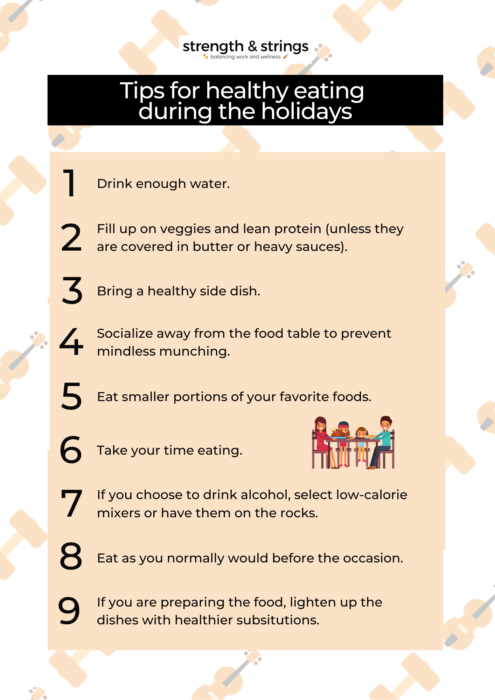
There are three main types for cardiovascular disease prevention: primordial, secondary and secondary. Each consists of the same elements, but their starting points and effects differ. To prevent these problems, it is important for patients to identify their risk factors and create a personal plan. The goal is to reduce your risk for cardiovascular problems and live a long and healthy life. Here are some tips to help prevent heart disease. This article explains the causes and treatments of various cardiovascular diseases.
First, focus your efforts on a healthy diet. A heart-friendly meal is one high in fiber and low in salt and rich in vitamins or minerals. Next is to stop eating processed foods like white bread and snacks. These foods are not heart-friendly unless they contain a high-fiber content, which is best for the body. You can also avoid processed snacks and fast food. Finally, avoid reaching for the salt shaker. Over-salinization can lead to heart disease.

Exercise is an important part of a healthy lifestyle. Experts recommend 150 minutes of moderate exercise per week, which is about 20 minutes each day. They also recommend eating low-calorie foods and choosing low-calorie options. A regular exercise program can also lower blood pressure, prevent heart disease, and help you stay healthy. Practicing mindfulness and managing stress can also help prevent heart disease. Changing your lifestyle is easier than you think and it's not difficult!
A healthy diet will reduce your risk of developing heart disease and help you to avoid heart attacks. A diet rich with fruits and vegetables has been shown to reduce the risk of developing this disease. Low-fat protein and beans are also excellent sources of protein and may reduce your risk. Certain fish are also high in omega-3 fatty acids, which may help you reduce your risks of cardiovascular disease. These methods can be incorporated into your daily life if you have the time.
Smoking can increase your risk of developing heart disease. Trying to quit smoking will help you reduce your risk for coronary artery disease. Smoking should be stopped. The less cigarettes you smoke, the better for your heart. Avoiding secondhand smoke can also lower your risk of developing coronary artery disease. If you're a smoker, it's important to quit smoking. This will reduce your chance of developing heart disease.

A lifelong effort to prevent heart disease can be made. While it is difficult to detect, the disease can lead to an increased risk of heart failure and other serious symptoms. It is important to take steps to reduce the risks of heart disease. If you have healthy habits, your chances of developing this disease will be reduced. This will help you live a long healthy life. The more you do, the healthier you'll be.
FAQ
Do I need to exercise every day?
No! Get at least 30 minutes of moderate-intensity physical activity 5 days a week. This could be walking fast enough so you feel slightly out breath or cycling hard enough to sweat.
How many times a week should I exercise?
It depends on how much time you have available and what type of exercise you prefer. A general guideline would be moderate-intensity aerobic exercise 3 - 5 days a week. It is important not to overdo it. It is crucial to exercise regularly in order to reap the full benefits of your workouts.
Which exercises are best for me?
It really depends on what kind of fitness goals you have. Some people prefer endurance sports like swimming, cycling, or running. Some people enjoy lifting weights and using resistance bands. There are many options for exercise today. Pick the option that fits your needs.
What diet supplement is best to lose weight?
It is important to exercise and eat right in order to lose weight. However, some people find that certain supplements help them along the way.
Many studies show that omega-3s may help you lose weight. Omega-3 fatty acids are essential fats that are vital for brain function, cell membrane integrity, and other functions. They're found in seafood like salmon, tuna, shrimp, and cod liver oil.
Research suggests that green tea may be beneficial in weight loss. Green tea has catechins, which are antioxidants that can help increase metabolic rate and encourage weight reduction.
What's a good routine for a daily workout?
You must exercise regularly to stay fit. No matter what kind of exercise you do, as long you do it consistently. The key thing is consistency. If you want to achieve results, you must stick at it for an extended period.
Begin small daily activities like walking. Then gradually increase the time spent exercising until you spend 30 minutes a day working out. This could be running, biking, swimming or weight training.
You should try to ensure that you exercise most days of the week. Don't miss any sessions unless you have an excuse.
When exercising outside, make sure you have the right clothing and shoes. You should also consider the weather conditions that could affect your ability exercise safely.
When you exercise, make sure you are drinking plenty of water. It is best to avoid alcohol while you're exercising. Avoid caffeinated drinks, such as coffee, tea and cola. They can give you energy, but will also dehydrate.
At first, it's normal to feel tired after you finish your exercise routine. You'll feel more energetic and refreshed if you keep going with your exercise program.
What food should I avoid if I want to lose weight
Avoid trans fats. Trans fats can increase LDL (the negative) cholesterol levels and decrease HDL (the positive) cholesterol.
Trans fats can also be found in deep-fried food, fast food, packaged bakery goods, snack cakes, as well as other processed foods.
These unhealthy fats are also known to cause inflammation and lead to heart disease as well as diabetes.
Avoid foods containing artificial sweeteners. Artificial sweeteners are linked to an increased risk of cancer.
These chemicals are used in everything from soft drinks to chewing gum to candy bars. They are also found in poultry, eggs, meat and fish.
Artificial sweeteners include saccharin, cyclamate, sorbitol, aspartame, acesulfame-K, and sucralose.
These chemicals can damage DNA and cause cell death, according to the American Heart Association.
Statistics
- According to the American Academy of Dermatology (AAD), men over 50 are at a heightened risk of developing it. (healthline.com)
- Are You One of the 20% of Guys (mh.co.za)
- The PRS enabled risk stratification for overall prostate cancer and lethal disease with a four-fold difference between men in the highest and lowest quartiles (HR, 4.32; 95% confidence interval [CI], 3.16-5.89). (pubmed.ncbi.nlm.nih.gov)
- 10 pounds in a month is likely during a lean bulking phase, especially for beginners. (muscleandstrength.com)
- By John Thompson Take a whopping 38% off a set of PowerBlock Pros. (menshealth.com)
External Links
How To
How can I burn fat and exercise?
Exercise can help you burn calories and increase your metabolism.
Exercise at a moderate intensity to safely lose weight.
To burn fat while exercising, follow these tips:
-
Do cardio exercises such as walking, swimming, jogging, cycling, running, or elliptical training.
-
For 30 minutes, do it three times a week.
-
You can lose weight by adding strength training to the routine.
-
Avoid intense exercise. You can build muscle and not break down muscle tissue.
-
When exercising, make sure to drink lots of water. Water helps to flush out toxins from the body and maintains proper hydration.
-
After exercising, you should drink low-fat protein drinks. Protein shakes are great for your muscles and energy.
-
Eat smaller meals throughout the day, so you don't feel hungry between meals.
-
Don't skip breakfast! Skipping breakfast can cause you to feel tired and sluggish.
-
Take care of your mental health. Stressful situations can slow metabolism.
-
Keep a positive attitude. Studies show that overweight people are more likely to be obese than those who perceive themselves as attractive.
-
Sleep enough. Insufficient sleep can make it more difficult to lose weight.
-
Active living is key. Keep moving every hour.
-
Maintain a healthy diet. Eat right to feel satisfied and full for longer.
-
Relaxation is possible by finding ways to relax. A tense mind doesn't allow your body to release stress hormones that break down muscle tissue.
A balanced diet will provide all nutrients that are necessary for growth.
Instead of eating three large meals a day, eat six smaller meals every day. This allows your body time to digest what you've eaten.
You need about 500 milligrams of calcium daily to maintain strong bones. Calcium can be found as a dairy product such as milk, yogurt and fortified soy drinks, orange juices, cereals, breads, and cereals.
Calcium is found in leafy green vegetables and beans, tofu as well as nuts, seeds, cheese, and seeds.
Vitamin D is required for calcium absorption. Vitamin D is found in certain fortified foods, such as egg yolk and fatty fish.
Vitamin E is crucial for skin health. Vitamin E can be found in vegetable oils as well as wheat germ oil, peanuts and almonds.
Your body needs zinc to maintain normal immune function and heal wounds. Zinc is found in oysters, legumes, meats, whole grains, and seafood.
Zinc deficiency could cause fatigue, nausea, vomiting, and depression.
Sugar intake can lead to insulin resistance which causes blood glucose levels to rise. Insulin resistance is linked to weight gain.
Insulin resistance develops when there are high levels of free radicals in the bloodstream. Free radicals are molecules that have unpaired electrons, which can cause damage to cell membranes or other parts of your body.
Most free radicals come from pesticides herbicides, food additives, preservatives smoking, radiation, chemical in cosmetics, lotions and household cleaning supplies.
Free radical damage can lead to cancer, heart disease, diabetes, arthritis, asthma, and aging.
A well-balanced diet rich in antioxidants is the best way for you to avoid free radical damage. Antioxidants protect against oxidative damage.
Vitamin C, beta carotene (found within citrus fruits, carrots, sweet potatoes and spinach), Vitamin E (found inside nuts, olive oils, avocados and eggs), and Vitamin C (found among mangoes.
Selenium, copper as well as manganese and zinc are some other antioxidant nutrients.
Selenium protects cells against oxidative damage from free radicals. Selenium can be found in Brazil nuts and liver, kidneys, liver, kidneys, shrimp, cod, turkey and lamb as well as chicken.
Copper protects the brain and eyes as well as the lungs and red blood cells. Copper is found in shellfishes, poultry, meat, organ meats, and other foods.
Manganese plays an important role in bone structure. Manganese is found in brown rice, spinach, bananas, prunes, raisins, oatmeal, and lentils.
Zinc is necessary for average growth, reproduction, and wound healing. Zn can also be found in white fish, lean cuts of meat, poultry, and eggs.